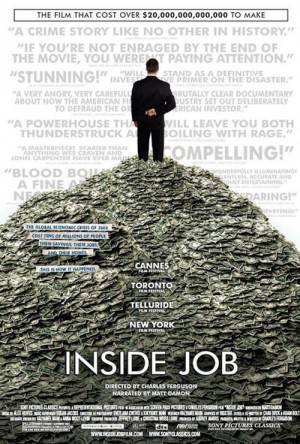
The 2011 Annual Meeting of the History of Economics Society (HES) took place in South Bend, Indiana, at Notre Dame University, under the auspices of Philip Mirowski, probably with fewer attendees than usual. This time there were new elements in the way the meeting was organized: there were more plenary sessions, several of them with non-historians of economics (David Kaiser (MIT) on physics and economics; John Cassidy (New Yorker) on “How Markets Fail”; Rakesh Khurana (Harvard Business School) on the professionalization of business education), besides the regular HES Presidential Address, by Jerry Evensky (Syracuse University). There was also a screening of the documentary “Inside Job”, followed by discussion led by our buddy Tiago Mata.

Another thing that I liked very much was that there were many roundtables: on Malcolm Rutherford’s book, Institutionalist Movement in American Economics (Cambridge University Press); on Robert Leonard’s book, Von Neumann, Morgenstern and the Creation of Game Theory (Cambridge University Press)—check also Yann’s post on this book—, on the prospect of writing the history of Paul Samuelson as economist (more on this later), and on the teaching of the history of economics (organized by Avi Cohen).
I’d like to focus now on the roundtable session on Paul Samuelson, with Perry Mehrling (Columbia University, Barnard College), Michael M. Weinstein (The New York Times), E. Roy Weintraub (Duke University), and Wade Hands (University of Puget Sound). Perry Mehrling was first, and went over the MIT way and its economics department, drawing also on the work that other Kid of this Playground, Beatrice Cherrier, has been developing on MIT economics, in which Samuelson is very central. Then, Roy Weintraub started by pointing out that while historians of economics have payed a lot of attention to Chicago and Friedman (and Stigler, Knight, Becker, Lucas …), for instance, almost no historical work has been done on MIT and Samuelson (Samuelson is MIT’s economics, as there was no economics department at MIT prior to World War II). He then mentioned that the historical importance of the MIT economics department in the transformation of American economics is the subject of the 2013 HOPE Conference, that he is organizing. Wade Hands talked about his interest on the neoclassical synthesis and Paul Samuelson’s role in it, and that he has already gone through a few boxes of Samuelson’s archives (deposited at the Rare Book, Manuscript and Special Collections Library, Duke University, as part of the Economists’ Papers Project) and have not found so far what he first expected to find. Finally, Michael Weinstein, who has been commissioned to write a biography of Paul Samuelson (and we know that Roger Backhouse is engaged in a similar project), stressed that he wants to write an intelectual biography of Samuelson and his ideas, and wanted to hear more from the historians about such enterprise.
The discussion was very interesting, with historians pondering on important issues related to biography writing, the role of textbooks and Samuelson’s Economics, Samuelson as a mathematician, how to use the information about Samuelson coming from his peers and colleagues, the archival material and so on. John Davis asked a question that I found very important (I’m trying to remember the exact words, but I may be misquoting him): what are the challenges of writing about an exceptional figure (not only in the sense that one can often pull the “genialness” out of the hat)?
This is exactly the question that came right to my mind when I read that a new documentary on The Beatles is being released, “Beatles Stories”, directed by Seth Swirsky, a song writer hugely influenced by the Liverpool band (and he is very explicit about his love for them). He simply bought a film camera and started interviewing people who interacted with them, in order to “uncover” stories never heard before, as John Lennon’s alleged enthusiasm with Ronald Reagan in the early 1980s (the trailer is available in Youtube).
So, how hard is to write the history of exceptional figures? Shall we buy film cameras?



